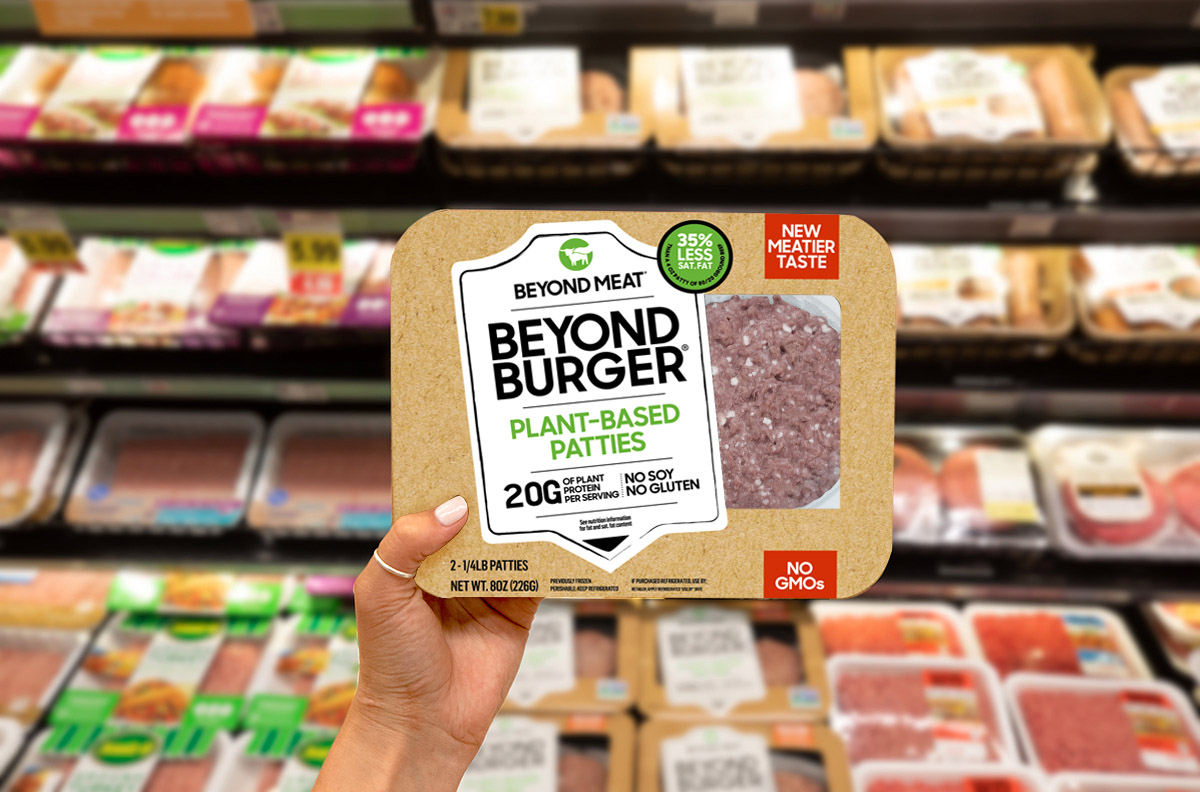Beyond Meat (BYND 4.54%) has seen its stock fall 66% over the past year. It ended 2022 on a fairly weak note, which probably shouldn't be surprising given Wall Street's treatment of the shares. With cash balances falling fast, investors need to worry about both the company's ability to turn a profit and its ability to do so before lenders ask for their money back.
A good story turns into a terrible one
It wasn't all that long ago that everyone seemed to want to try alternative meat products, with Beyond Meat's products a top-of-mind offering. The company has such name cachet that it has even been able to ink deals with major food retailers like McDonald's for both fake meat burgers and fake meat chicken nuggets. But so far it hasn't resulted in big hits for Beyond Meat.

Image source: Getty Images.
Given the stock price decline, it appears that Wall Street has noticed that people still like meat. On top of that, there are other competitors in the alternative meat space that have much greater sizes and scales than Beyond Meat, including consumer staples giants like Hormel and Kellogg, which has long sold similar products under its Morningstar Farms banner. Being a fad product is fine, but if all you have is a fad product, life can get difficult very quickly.
The best evidence of that is the company's 2022 results. The food maker had 130,000 distribution points at the end of 2021, and 190,000 by the end of 2022. Beyond Meat was also cutting the price of the products it sold. Both of these should have resulted in increased volume, but the company only sold 0.4% more pounds of product in 2022, and ended the year with a 16.9% year-over-year fourth quarter volume decline.
Losing money and then some
On top of the fact that Beyond Meat's products appear to have lost some luster with consumers, the company is still bleeding red ink. In fact, it has yet to turn a full-year profit, and the losses have been getting worse since 2020. While some of the red ink can be attributed to spending on innovation, since the company's products aren't selling well all of that innovation may not be worth very much to shareholders.
BYND EPS Diluted (Annual) data by YCharts
But this is where things start to get even worse. The company has $1.1 billion in debt on its balance sheet. Meanwhile, its cash balance fell from roughly $730 million at the end of 2021 to just under $310 million at the end of 2022. If it burns cash at the same rate in 2023, it won't have any cash by the end of the year.
That isn't likely, but it does highlight the very real time limit that is hanging over the company. With the stock price down so much, selling stock is unlikely to be a cash-raising vehicle that Wall Street approves of given the dilution it will cause. More debt, meanwhile, will only make the balance sheet look worse -- and the current debt comes due in early 2027. At that point, lenders will probably want to be repaid.

NASDAQ: BYND
Key Data Points
There are nuances here, including the fact that the debt is convertible carrying a 0% coupon rate. That's good news, but the conversion price of $206 per share is wildly higher than Beyond Meat's current stock price of around $15.50. Converting below the $206 price would result in losses for the convertible debt holders. This means that unless something changes materially for the better, the company will have to pay lenders back the $1 billion-plus face value of the convertible notes in less than less than four years.
That may seem like a long way off, but add in the losses and the cash burn taking place and investors shouldn't ignore the risk this poses, or the time limit it imposes on the company's efforts to improve financial results.
Watch the balance sheet
Yes, investors should be paying attention to Beyond Meat's top and bottom lines. But don't forget that the cash and debt the company has on its balance sheet are just as important given the ongoing red ink.
This company does not have an infinite timeline for becoming profitable, and if it can't do that quickly enough, bankruptcy is a very real risk. The Hail Mary pass here would be selling out to a larger food company, but the chance of a completely unpredictable acquisition is not enough reason to buy stock in this troubled company as time seemingly runs short.






